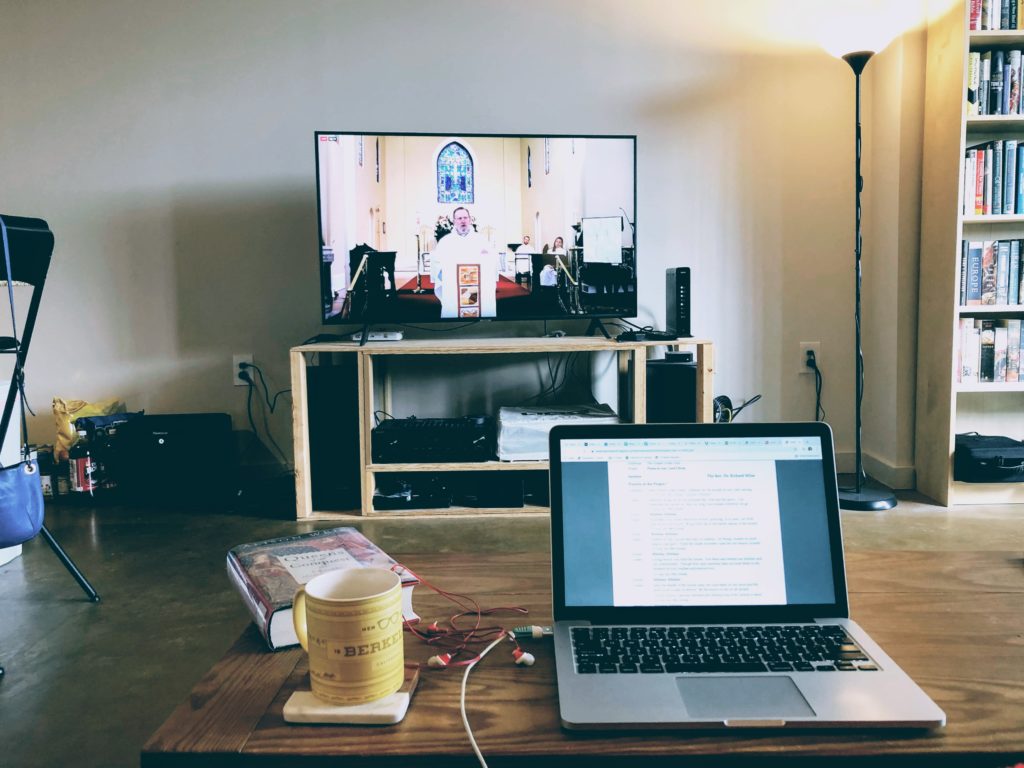The forest has changed.
In March, I started walking almost daily in it. There was no sign of spring yet, just brown and gray hillocks clustered with bare trees.
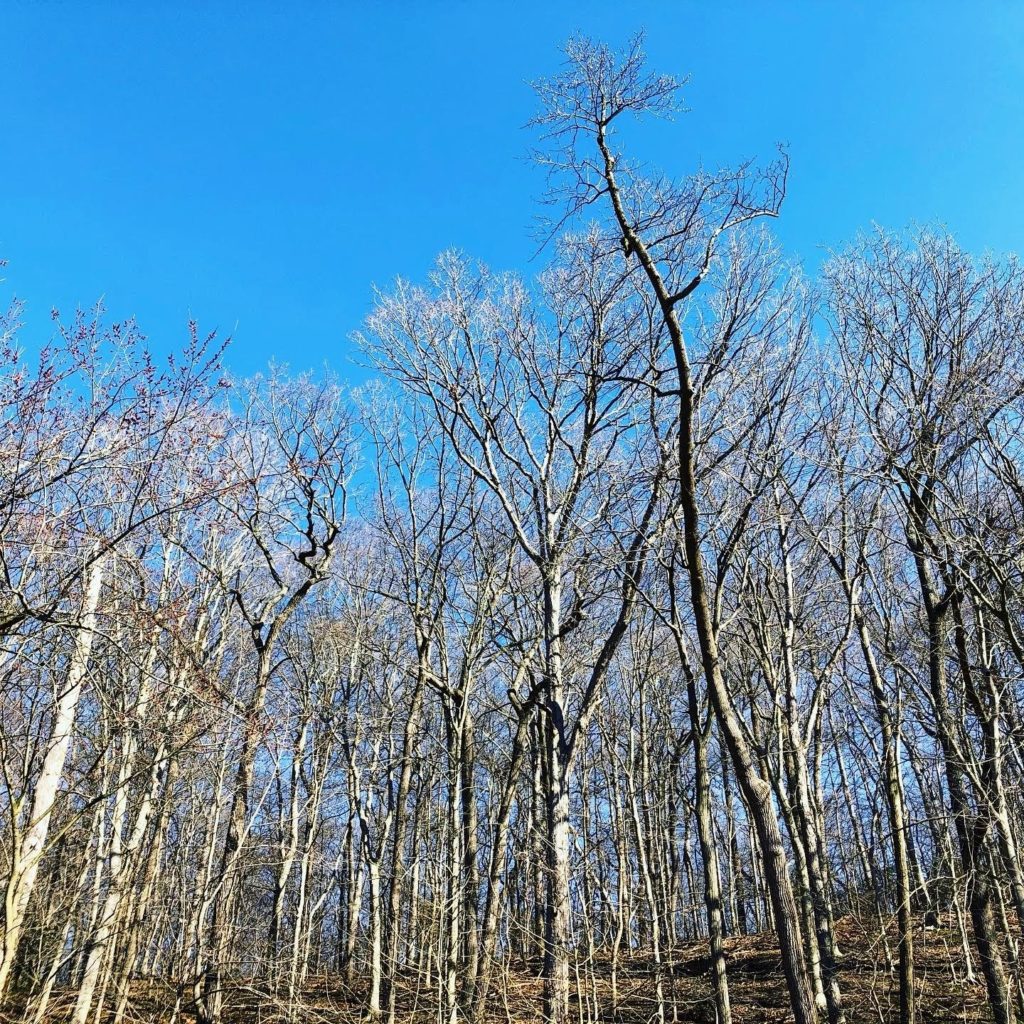
It took weeks for the small weeds clustering the floor to leaf out. This made me ecstatic. Tiny signals of spring. Little neon fingers of yellowest green began peeking out at the tops of the trees, in time, but I could still see straight through the forest to the sky, through the park to the houses.
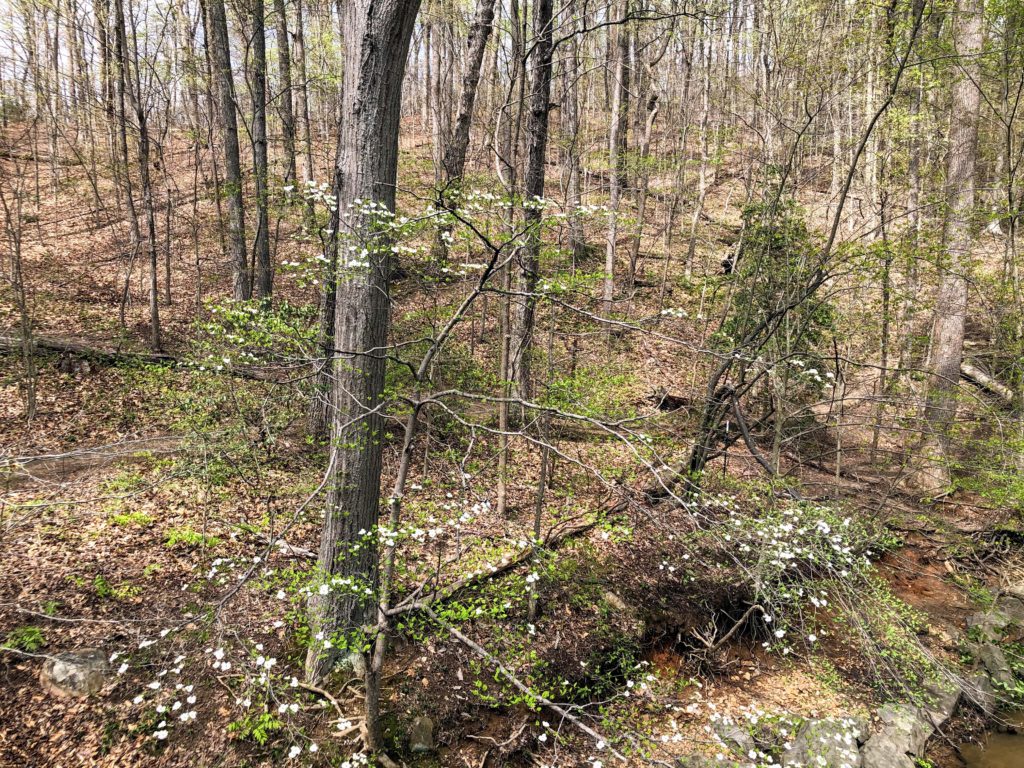
I don’t know when it happened but the forest changed.
Maybe I walked in it less frequently for a few weeks in April, or maybe April zipped by me while I napped. But this week, I got lost several times on paths I came to know well in their brown phase.
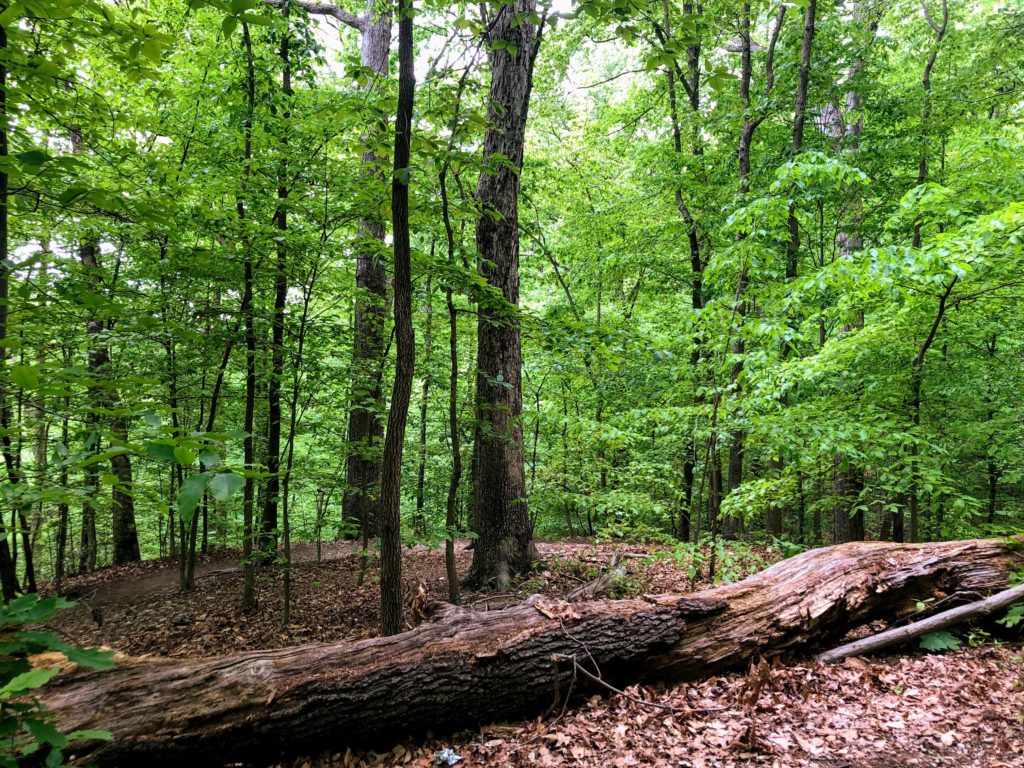
Curious signposts were all I had to anchor me in the riotous expanse of green that was just yesterday an austere expanse of brown. A tree cut off about ten feet high, its stump shredded like a Troll doll’s hair, was my surprising signpost yesterday. I’m here? And there I was. Without that tree I would have thought I were a mile away from where I actually was, because all the other trees are masquerading as strangers. Or maybe their masks are off, now. I’m not sure which.
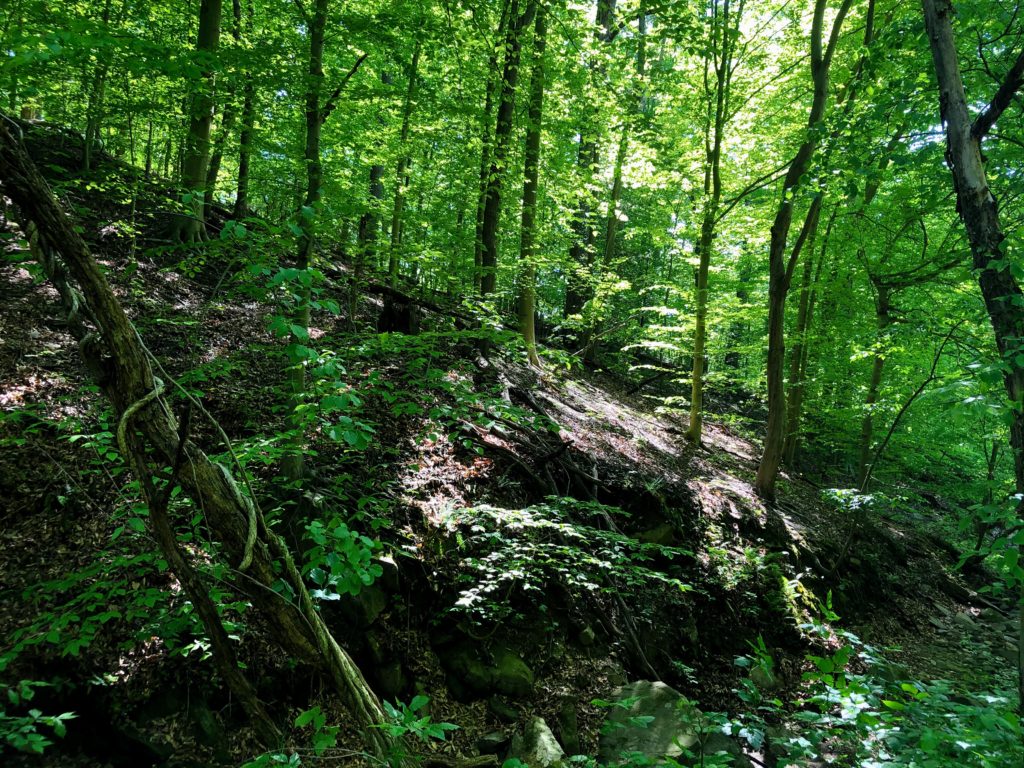
I’m not a parent but this must be what it’s like to watch your child grow up. Day by day, minute by minute, change is imperceptible. Then all of a sudden, the infant is running and speaking in full sentences.
Change is like that.

Today I walked six miles in sandals, which I don’t recommend, but in fairness I didn’t plan it. Once I got to the trees I turned the wrong direction on purpose and kept going. I needed it.
The wind was sowing pollen everywhere like snow, and it was gusting every which way, a mercy in the sudden summer heat today brought. Whenever I am in the trees and I feel the wind, I think of Elijah:
He said, “Go out and stand on the mountain before the Lord, for the Lord is about to pass by.” Now there was a great wind, so strong that it was splitting mountains and breaking rocks in pieces before the Lord, but the Lord was not in the wind; and after the wind an earthquake, but the Lord was not in the earthquake; and after the earthquake a fire, but the Lord was not in the fire; and after the fire a sound of sheer silence. When Elijah heard it, he wrapped his face in his mantle and went out and stood at the entrance of the cave. Then there came a voice to him that said, “What are you doing here, Elijah?”
1 Kings 19:11-13
The problem is, I stubbornly remember this passage wrong. The Lord was not in the wind, it says, but I think he often is. He’s in the silence too, and sometimes the earthquake and the fire. Wind, definitely. The Lord is in the wind. So are allergens. It’s all part of it. Having a humble, sneezy, blister-footed body is part of it.
The creek was calling to me, and I’m usually in too much of a hurry (officially running, officially walking, must get back, no time to spare!) but today, not so much. I bushwhacked a few yards and sat on a rock to soak my feet in it.
God’s in the creek, too.

The last several miles were through neighborhoods, where kids biked around in swimsuits and neighbors sat on many stoops drinking and talking at a distance. Men armed with spatulas and spray cans of OFF faced their barbecues. Groups of friends sat in large circles on lawns.
It’s coming to seem as though socializing outdoors is a lot safer than we’d thought, and indoors is more dangerous than we’d thought. The rule of six-feet doesn’t apply evenly because of airflow. Indoors, you might have the same sickly air passing you by for hours. Outdoors, it all circulates globally and winds carry it in all directions, and it’s hard to get to a dangerous concentration.
There’s something poetic about this, although I’m wary of ending with a trite, privileged optimism. But I can’t help it: I love the idea that we can all, maybe, sit outside together, even this summer, under the trees. Golden summer can still happen.
WHEN I AM AMONG THE TREES
When I am among the trees,
especially the willows and the honey locust,
equally the beech, the oaks and the pines,
they give off such hints of gladness.
I would almost say that they save me, and daily.
I am so distant from the hope of myself,
in which I have goodness, and discernment,
and never hurry through the world
but walk slowly, and bow often.
Around me the trees stir in their leaves
and call out, “Stay awhile.”
The light flows from their branches.
And they call again, “It’s simple,” they say,
“and you too have come
into the world to do this, to go easy, to be filled
with light, and to shine.”
Mary Oliver
